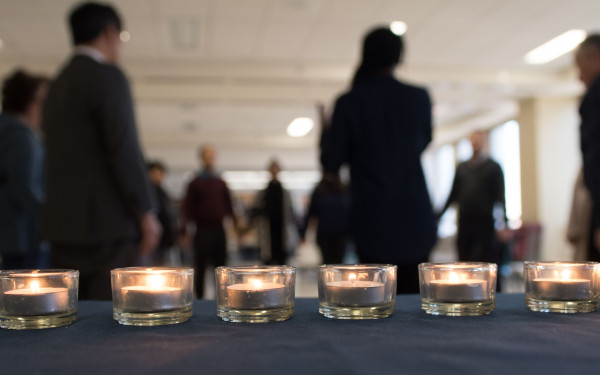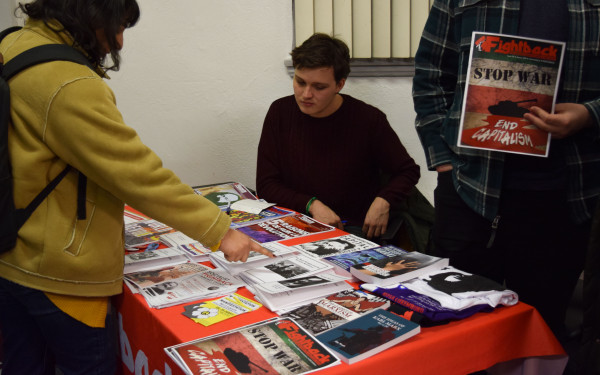Students Denied Prayer Space Request in EV Building
Muslim grad students looking for a space to pray in Concordia’s EV building have been told they will have to continue their frequent jaunts to the Hall building due to an issue of space allocation.
Robin Drew, the dean of engineering and computer science, rejected the request made by at least 20 grad students, teaching assistants and research assistants to access a currently unoccupied “special projects room” on the fifteenth floor of the EV building four times a day for prayer.
In an e-mail response to the request put forth by the GSA, Drew wrote that while “sympathetic” to the students’ needs, the EV building was “built to be used exclusively as a research and teaching building” with no space to be used for student activities.
But GSA Engineering representative Natheer Atawna feels that such an immediate rejection shows no effort to accommodate the needs of students.
“They don’t understand the Muslim prayer and because of that, right away they refuse,” he said. “They don’t even ask to have a meeting to negotiate, to talk about it. They don’t have any kind of democracy here in this university.”
The walk to the seventh floor of the Hall building from the upper levels of the EV takes roughly ten minutes. Making the trek four or even five times per day for 10 minutes of prayer works out to at least two hours.
Students who raised the issue have started praying in stairwells and other spaces that offer a semblance of privacy in the EV building in order to save time.
But according to Atawna, stairwells are too cramped for 30 people praying at once and can be a safety hazard when blocked.
Robert Sonin, a representative from the GSA and VP Bargaining for the Teaching and Research Assistants at Concordia union, said the university is not doing enough to accommodate these students in a case where it would be “so easy” to do so.
“They’re asking for a hundred square feet out of a building that’s almost 700 thousand square feet,” said Sonin. “They have
plenty of room to do their research without that room. It’s not even being used.”
The request made was not specifically for an assigned prayer room for Muslims. According to Atawna, the students would like to keep the space neutral to respect others’ beliefs. Rather than have it assigned for anything, they want permission to reserve it for 40 minutes per day.
“They are students,” said Atawna. “They are paying service fees apart from their tuition. They feel it’s in their rights.”
Many of them are also employees of the university and members of TRAC. Both the university and the union are responsible for ensuring that the spiritual needs of their employees are met.
According to Sonin, this could have the potential to be filed as a discrimination case within section 18.1 of the code of Rights and Responsibilities at Concordia or a grievance through section 4.01 of the TRAC collective agreement because it deals with freedom of religion.
“I don’t know if this is a case of outright discrimination, but it’s certainly a case where [the university] should be accommodating,” he said.
TRAC president Thomas Leonard agreed.
“Considering the amount of time they spend having to go back and forth, I don’t think it’s an unreasonable request,” said Leonard. “It doesn’t seem like too much to accommodate them, considering it is such a large building. At the very least, they could make some sort of immediate accommodations for them until they could figure out something more permanent.”
Concordia spokesperson Chris Mota told The Link that the university has already set aside Muslim prayer space in the Hall building and in the Campus Centre at Loyola and did not plan on creating new prayer space.
This article originally appeared in Volume 31, Issue 17, published January 4, 2011.






